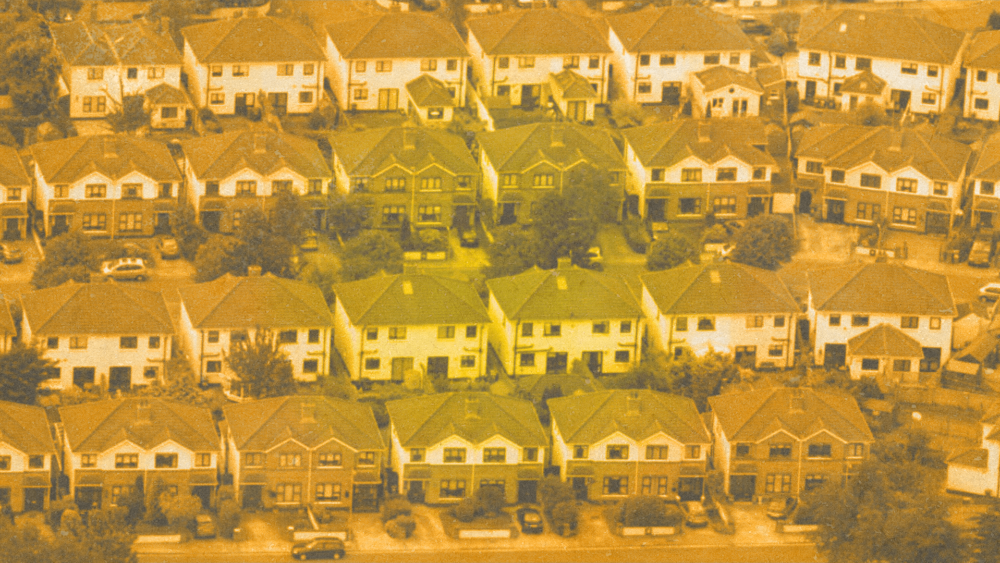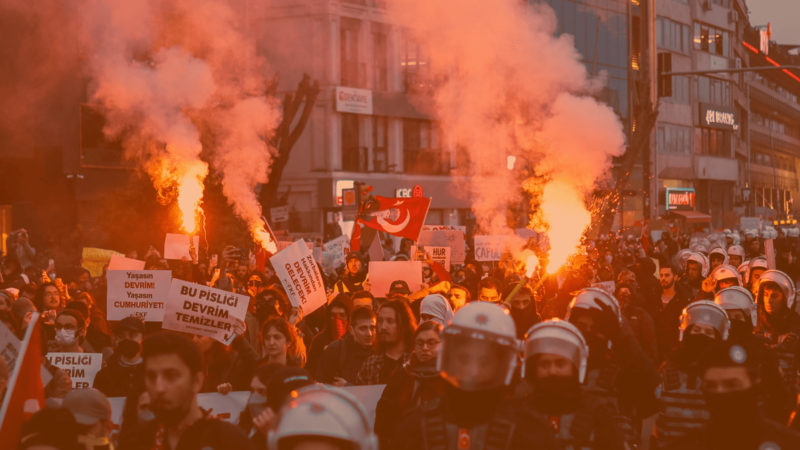DiEM25 in Ireland member George Stavrou reflects on how it has become much more difficult for younger people to afford a decent place to call home. How is it that even recently qualified college graduates like him find themselves in this situation in the second most prosperous country in Europe?
I am sitting in a mobile home on the west coast of Ireland, where I live, with my daughter. It is not a particularly fancy mobile home: I do not have hot water, and it shakes in the storms. A lot of other people like me, who have graduated from university with good results after hard work, are also badly affected by housing supply shortages.
They too have started their careers after landing jobs immediately on successfully completing their courses in third level education. But we are left questioning: what does our generation get out of this?
It seems to us to be about uncertainty for our economic future. We are meant to feel lucky if we manage to be in a situation or location where we have a living space that is warm, and to be able to work remotely so as not to have to live in a city where rents have become outrageously expensive.
In a series of articles we will examine one of the most tangible elements of this uncertain future in a supposedly ‘booming’ economy with ‘an abundance’ of jobs – the housing crisis in Ireland.
Ireland’s housing crisis
Over the last decade, Ireland has witnessed a dramatic surge in rental prices, with rents doubling during this period. This significant increase has had considerable consequences for the average Irish citizen and others living here. A staggering 90 percent of earners in Ireland now find average rent unaffordable according to international definitions of affordability. The situation has become so dire that, in December 2021, Dublin ranked as the sixth most expensive capital city in the world to rent in.
This affordability crisis has had a substantial impact on the living conditions of the population. In fact, 20 percent of households, amounting to approximately one million people, now reside in the private rental sector – Rory Hearne’s book that covers this is a difficult but necessary read. In 2013, housing was deemed affordable in Ireland, with the national average house price sitting at €171,000.
However, by 2020, house prices had skyrocketed to seven times the median income, which is classified as ‘severely unaffordable’ housing under international definitions of housing affordability.
The sharp increases in both house prices and rents over the last decade can be attributed directly to government policy, a policy which is dominated by an approach to incentivise and to give private for profit market-driven mechanisms of big business free rein in the housing provision sector.
An illustrative example of this are Real Estate Investment Trusts (REITS). These large corporations, which have been made exempt from paying corporate taxes by government legislation, own and control ever more dwellings to rent. This includes renting to the State Agencies responsible for the provision of public housing.
In 2019, large corporate landlords such as REITS, accounted for 44 percent of all new purchases in Dublin and an astounding 95 percent of all newly built apartments in the country. This has resulted in the highest number of evictions of tenants since the foundation of the State following the democratic revolutionary period 100 years ago.
It has been indicated how the private business interests of members of the government and ruling political parties are intertwined with the financial interests of these corporations when it was revealed that a Minister of Housing had shares in one of these ‘cuckoo funds’.
This also extends to many other elected representatives owning property and directly benefiting financially from renting to tenants having to rely on the private rental ‘market’ to find somewhere to live. For instance, one out of six TDs elected to the National Assembly in Dublin own properties for rent.
A large proportion of them, about 50 percent, are members of the ruling governing parties, with some of them sitting as Ministers at the ‘Cabinet Table’.
Questions on such selfish behaviour were raised during a recent vote to lift the Eviction Ban, which had been in place since the COVID-19 pandemic to protect vulnerable renters.
Hidden homelessness
Hidden homelessness is another crucial aspect of the housing crisis that often goes unnoticed, as it is difficult to measure and quantify. This form of homelessness involves individuals who do not have a stable or permanent place to live but are not visible on the streets or accessing emergency accommodation.
Instead, they may be staying with friends or family, sleeping on couches, or moving between temporary arrangements.
Young people, in particular, are vulnerable to hidden homelessness, as they struggle to find affordable housing options that cater to their needs. The challenge in accurately measuring hidden homelessness lies in the fact that these individuals are not typically included in official statistics, making it harder for policymakers and support organisations to address their specific needs.
It is essential to acknowledge and address this hidden facet of the housing crisis to ensure that all those affected receive the support and resources they need to secure stable, long-term housing.
The necessity for change
In the face of this challenging situation, many people are not standing idly by and are coming together with others in their communities to take action to resist the imposition of various injustices that can be heaped upon them because of this ongoing housing crisis.
In one way or another, they are trying to collectively confront the negative impacts of the three aspects of this crisis – spiralling and unsustainable cost of rents, lack of affordable homes, and dangerously defective dwellings.
In waging this struggle, some are recognising that these problems they are experiencing are not produced out of thin air, but are the result of practices inbuilt into an exploitative system that we the many are labouring under. A system of ‘rentier capitalist’ domination with rule by the few – an oligarchy. A system where everyone and everything, including housing needs, are treated as a commodified entity for the extraction of money to enrich a minority.
DiEM25 members see that this must be changed, and are ‘inspired by the vision of a non-exploitative Europe made possible by real solidarity, comprehensive transparency and authentic democracy’.
Do you want to be informed of DiEM25's actions? Sign up here















